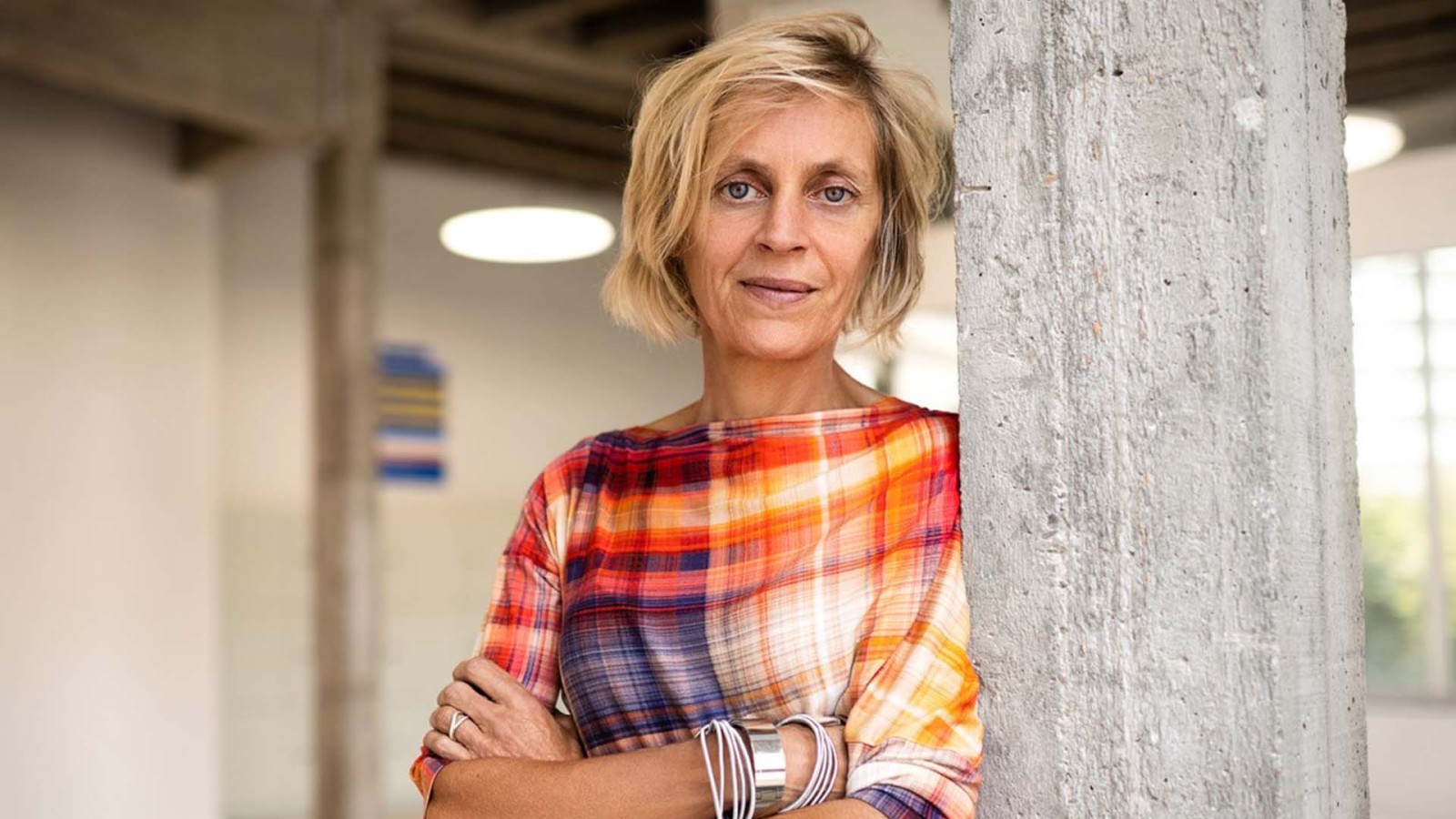Broadening our view of the world is what Ann Buysse wants to achieve with her book 'Zoveel tussen ons’ (So much between us). She is a professor and dean of the Faculty of Psychology and Educational Sciences.
"I have never been so unsure about anything before. Especially because it has not become a purely academic book. I also put a lot of myself into it."
Your book reads like an ode to diversity, let's start with ourselves. We are one individual, but we take on many different roles in our lives.
"That's right, we are many at once: son or daughter, parent, neighbor, friend, partner, UGent'er,... And each of these roles brings with it rules: just think of the new habits you have to learn when you travel to another country. Or the different ways we greet each other: when do you give a handshake, when one, two or three kisses? It all depends on your role at the time. I'm not going to start dancing here during this interview either (laughs).
Sometimes we coincide with a role for a while. But when one role becomes the only story, it is always limiting. I may be a professor, but I am also the insecure mother, the tired runner and a vulnerable human being.
Some roles evolve. And when we play many roles, we learn a lot about other perspectives. In this way, we not only differ from each other, but also from our own selves. Maybe you recognize yourself in the environmentally conscious plain traveler, the soap-addicted academic or the confident risktaker who gets anxious when his mother asks about his love life. The more roles and stories there are in your life, the richer your life.
Moving from the individual to the family. There are fewer and fewer traditional families. You also consider this to be a form of wealth?
"A family is like a culture in itself. A dominant cultural narrative is that of the nuclear family: two biological parents and their children. This aligns with the notion that blood ties automatically imply love, and that parent-child relationships are involuntary: you cannot get out of them.
In families where parents and children are not all biologically related, these ideas are put to the test. One aspect is the involuntary nature of family relationships. Parents and children in those families make often more conscious choices. Sometimes they choose to prioritize their relationship, while other times they opt to maintain mutual respect without significant investment. And we can learn from that: in case of intense problems, such a way of dealing with each other can also give breathing space in a nuclear family.
People often strive to minimize 'being different', but there is much to learn from ‘different’ families. Consider an adoptive family, which often prepares for the arrival of their baby to resemble that of a 'normal' family as much as possible. Or consider a family with two mothers who navigate occasions like Mother’s Day without causing unnecessary complications. As our society – thankfully – embraces diverse family structures, we must also shift away from the notion that all families adhere to the nuclear model. There are countless ways to be a good family."
In your book, you also delve into the influence children have on their parents. Is it more significant than commonly perceived?
“In parent-child relationships, the focus often rests on the influence of parents on their children: the belief being that consistent parenting yields well-behaved children. However, it's equally right to consider the reverse perspective: having well-behaved children can make consistent parenting less challenging. It's not an either-or scenario; rather, it's a dynamic exchange and ongoing interaction between parents and children.
When we ask parents about their children's influence, they often get angry and say that children are not the boss in the family. They are right, but when we then explain the difference between authority and influence, they agree. Then they find it an interesting question. Parents have more authority – they are older in age and have more responsibility – but children have just as much influence.
Children also influence their parents. Moreover, feeling that as a child you make a difference in your parents' lives is very important. Just as it is important for parents to feel that they are making a difference in their children's lives. In divorce, that sense of mutual influence becomes particularly vital.”
With this first book, you have now taken on the role of author. How did you find that experience?
"Challenging. I like to explain things but writing them down is another matter. When you think about it, every argument seems silly, and every sentence feels rigid. But what I missed the most was interacting with the audience. It was a real paradox to write about 'what is between us' when I had no idea who I was writing for and therefore what is between the reader and me. I struggled with that. I used all my spare moments to write this book.”
Will there be a sequel?
"In 'So much between us' there are no figures because figures do not stand alone; they always exist in relation to or comparison with a group or a norm. I wanted to avoid that. I aimed to tell stories, showcase diversity, and avoid being normative in any way.
At the same time, that is of course also just one story, and sometimes I think I should explore the other – quantitative – side. Perhaps in 'So much above us', 'So much below us', 'So much without us', 'So much next to us', ... anything is still possible!" (laughs)

Ann Buysse is dean of the Faculty of Psychology and Educational Sciences, mother, runner, and now author of the book 'Zoveel tussen ons'.
Read also
Can I post this online? Five tips to safely share your children’s holiday photos
Adorable baby photos, your toddler's first day of school or this summer’s holiday pictures with the children. Parents love to share photos of their children. But sharing those photos online is not without risk. Doctoral researcher Elisabeth Van den Abeele offers tips for parents on how best to go about it.
Six tips for healthy screen time (for children & adolescents)
Our children are growing up in a world filled with screens. How much should we worry about this? Professor Mariek Vanden Abeele (imec-mict-UGent) analyses the benefits and drawbacks of digital connectedness among young people, and tells us how we can ensure healthy screen time.
Can you lie to children?
Children swallow a bunch of lies without realising it. Parents and educators often brush them off with a (half-)lie and as a society we’re no angels either with St Nicholas, Santa and the Easter Bunny. So is lying pedagogically acceptable? We asked professor of historic and general pedagogy Lieselot De Wilde of the Department of Social Work and Social Pedagogy.
How (un)healthy is worrying?
We all worry from time to time. It can even be good to clear the head, says professor Ernst Koster (department of Experimental Clinical and Health Psychology). However, it can also get out of hand.




